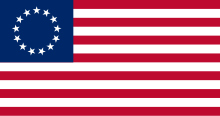Peter W. Schramm
Appearance
Peter W. Schramm (23 December 1946 – 16 August 2015) was a Hungarian-born American political scientist.
Quotes
[edit]


"Born American, But in the Wrong Place" (2006)
[edit]- "Born American, But in the Wrong Place" (5 October 2006), Claremont Review of Books
- Communists sentenced my father's father to ten years hard labor for having a small American flag in his possession (by that time he had been a leader of the social democrats for some years). At his "trial" he was asked why he had the flag. Was he a spy? He replied that it represented freedom better than any other symbol he knew, and that he had a right to have it.
- America represented to my father, as Lincoln put it, "the last, best hope of earth." I would like to be able to say that this made my father a remarkable man for his time and his circumstances. For, in many ways, he truly was a wonder. But this is not one of those ways. Among the Hungarians I knew—aside from those who were true believers in the Communists—this was the common sense of the subject. It was self-evident to them.
- [I]n America human beings could prove to the world that they have the capacity to govern themselves. I came to understand what Lincoln meant when he said that the ideas of the Declaration of Independence were the "electric cord" that linked all Americans together, as though we were "blood of the blood, and flesh of the flesh, of the men who wrote that Declaration." This is what it meant to be an American, and it wasn't all that far from what it meant to be a man.
- I'm in the ironic position of teaching native Americans (I mean native-born Americans) how to think about their country. How odd it seems, and yet how perfectly American, that I, a Hungarian immigrant, should teach them.
- [T]he United States of America, is not only the most powerful and the most prosperous country on earth, but the most free and the most just. Then I do my best to tell them how and why this is so. And I teach them about the principles from which those blessings of liberty flow. I invite them to consider whether they can have any greater honor than to pass undiminished to their children and grandchildren this great inheritance of freedom.
"One Last Card to Play" (2009)
[edit]- "One Last Card to Play" (3 February 2009), Claremont Review of Books
- It is never easy to give honor where great honor is due.
"Douglass and Lincoln" (2009)
[edit]- "Douglass and Lincoln" (12 February 2009), Claremont Review of Books
- The United States started out in 1776 throwing off the accident and force that ruled by hereditary right in the old world, inviting mankind to respect the equal rights of human nature and the revolutionary choice of government by consent.
External links
[edit] Encyclopedic article on Peter W. Schramm on Wikipedia
Encyclopedic article on Peter W. Schramm on Wikipedia
